Andrew Louth
Modern Orthodox Theology: Past–Present–Future
Eastern Theological Journal 9 (2023) 1, 35-59
Content
This lecture and the occasion of its delivery are due to Tibor Görföl’s translation into Magyar of two of my books—my first and my latest, primus et novissimus—The Origins of the Christian Mystical Tradition: from Plato to Denys (1981, republished with an Afterword, 2006), and Modern Orthodox Thinkers: from the Philokalia to the Present (2015).
ABSTRACT
First this lecture represents a personal account of Orthodox theology today: given by an Orthodox theologian from the ‘Diaspora’, himself belonging to the Moscow Patriarchate, invited by the Greek Catholic Church in Hungary. It does not represent a general view ‘from nowhere’. So far as Orthodox theology is concerned, we stand at a watershed, presented by the deaths in the last calendar year of Metropolitan Kallistos Ware (24 August 2022) and Metropolitan John Zizioulas (2 February 2023): two metropolitan bishops of the Ecumenical Patriarchate, who were shining stars in the Orthodox theological firmament, with an influence reaching beyond to, at least ecumenically-minded, Christians throughout the world. They were two very different theologians, for, though both academic theologians holding university posts, only Met John could be described as an academic theologian, renowned for his distinctive ideas, Met Kallistos’ influence being much more diffuse, less associated with theories, but exercised through his many research students. Twentieth-century Orthodox theology, at least in the Diaspora, had been largely influenced by the concerns of the Russian émigré theologians, centred on Paris, and the divide between two paths into the future: the so-called Russian Religious Renaissance and the Neopatristic Synthesis. Our two deceased metropolitans were associated primarily with the latter, though in the latter decades of their lives the star of the most prominent representative of the former, Fr Sergii Bulgakov (died 1944), has been in the ascendant. That is certain to affect the nature of Orthodox theology in the immediately future decades. Other changes will affect the future of Orthodox theology, both the fact that the last half of the last century saw the emergence of theologians (whether native Orthodox or converts), indebted to formation in Western academic standards and approaches, as well as the change from a theological agenda determined by the impact in Western Europe and North America of the Russian émigrés to one, more and more presentative of theologians belonging to the different national Orthodox traditions: Greek and Romanian, and then after the fall of communism, Russians who grew up under communism, and others like them—Serbs, Bulgarians, and Georgians. In this new context, the first question about Orthodox theology that emerges is: who is a theologian, one who prays (following Evagrios’ famous definition) or one with academic learning (something increasingly influenced by the Wester academic expectations and approaches), which leads into a question about the role of the spiritual elder in any Orthodox theology worthy of the name? What about approaches to theology? Two criteria seem to emerge from the experience of the last century: the centralityof the Paschal mystery, and the importance of the apophatic dimension of theology. Another more general question concerns the resources for Orthodox theology, consideration of which is hampered by a stubborn tendency towards anti-Westernism. But in terms of resources—reliable editions of theological texts (nothing new in Orthodoxy as the quest culminating in the Philokalia of SS. Nikodimos and Makarios makes clear), as well as questions of academic methodology—it seems to me that Orthodox scholarly theology has, with whatever reluctance, accepted the influence of prevailing methods in the West. The lecture ended with a coda on the question of the relationship between Eastern Orthodox and Greek Catholic theology. Seen in the light of an opening to the West, what we have in common seems far more important than what divides us. Furthermore what divides us—finding ourselves on different sides of rift in Christendom between East and West—is an issue that needs to be addressed, as a matter of paramount importance and urgency, for the credibility of the proclamation of the Gospel in a world, increasing estranged from the values that have traditionally shaped it.
